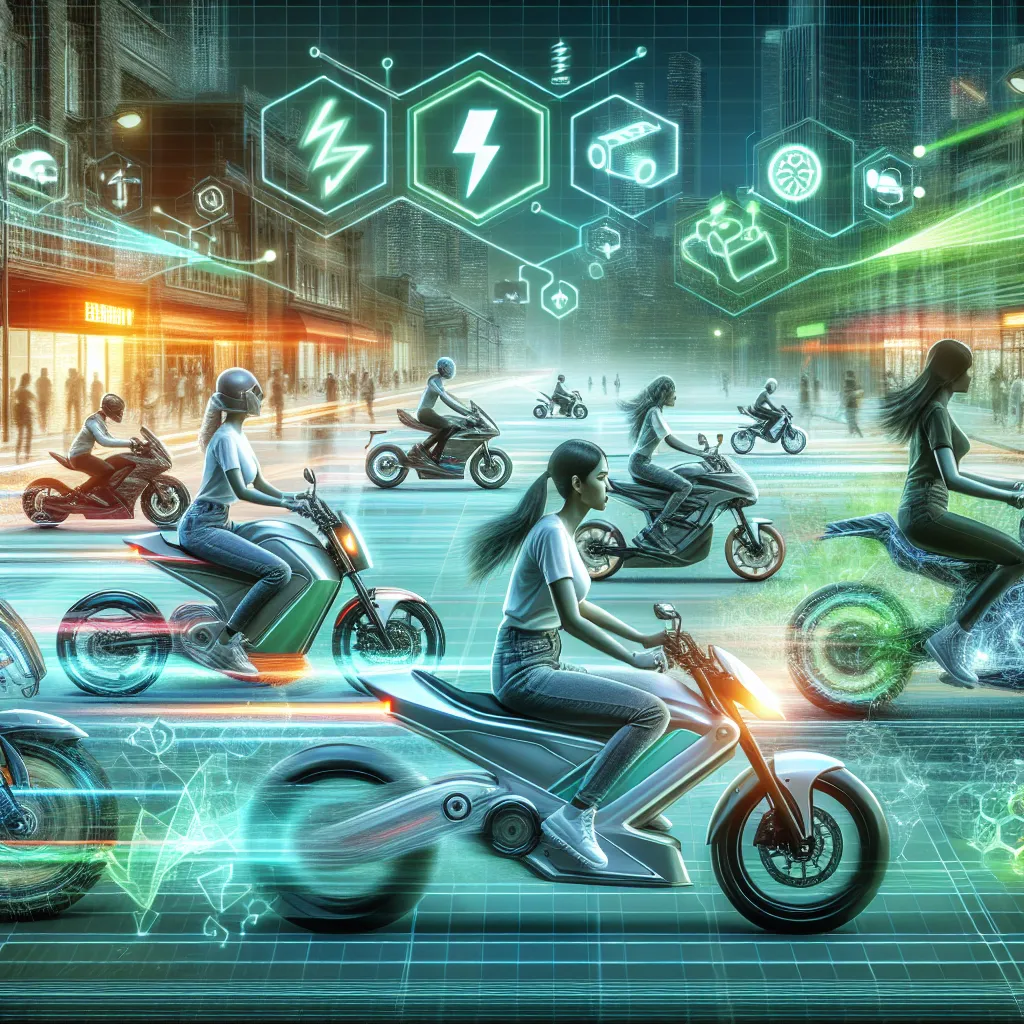Revolutionizing Transportation: The Rise of Electric Motorbikes
Revolutionizing Transportation: The Rise of Electric Motorbikes
The world is rapidly changing, and so is the way we commute. The rise of electric motorbikes is transforming the transportation industry, offering a sustainable and efficient alternative to traditional gasoline-powered motorcycles. With technological advancements and environmental concerns at the forefront, electric motorbikes are gaining popularity among commuters and enthusiasts alike. In this article, we will explore the benefits of electric motorbikes, their impact on the environment, technological advancements, and their future prospects.
1. The Environmental Benefits
One of the key reasons why electric motorbikes are gaining traction is their positive impact on the environment. Unlike their gasoline counterparts, electric motorbikes produce zero tailpipe emissions. By eliminating the combustion engine and replacing it with an electric motor powered by batteries, these vehicles help reduce air pollution and greenhouse gas emissions. This makes electric motorbikes an attractive option for eco-conscious individuals looking to contribute to a cleaner and greener future.
Moreover, the production of electric motorbikes has a smaller carbon footprint compared to traditional motorcycles. The manufacturing process for electric motorbikes involves fewer components and materials, resulting in reduced energy consumption and emissions. As the world is shifting towards renewable energy sources, charging electric motorbikes with electricity from sustainable sources further enhances their environmental benefits.
2. Cost-Effectiveness
While the initial cost of purchasing an electric motorbike may be higher than that of a gasoline-powered motorcycle, the long-term cost savings are significant. Electric motorbikes have lower operating costs as they require less maintenance, no gasoline, and fewer oil changes. With fewer moving parts, there is less wear and tear, resulting in reduced maintenance and repair expenses. Additionally, electricity is generally cheaper than gasoline, allowing riders to save on fuel costs.
Furthermore, many countries and cities offer incentives and subsidies for electric vehicle owners, including electric motorbike owners. These incentives can range from tax credits and rebates to reduced toll fees and free parking. As governments worldwide aim to promote sustainable transportation, the financial benefits associated with electric motorbikes contribute to their growing popularity.
3. Technological Advancements
The rapid advancement of technology has played a crucial role in enhancing the performance and usability of electric motorbikes. Modern electric motorbikes are equipped with cutting-edge features such as regenerative braking, which helps recharge the batteries while decelerating, improving energy efficiency and extending the range. Additionally, advanced lithium-ion batteries are becoming more affordable and efficient, allowing for longer rides and faster charging times.
Electric motorbikes also benefit from ongoing developments in electric propulsion systems and motor technologies. Engineers and manufacturers are constantly working on improving motor efficiency, power output, and overall performance. As a result, electric motorbikes are becoming faster, quieter, and more capable of rivaling their gasoline counterparts in terms of speed and acceleration.
4. Accessibility and Convenience
Electric motorbikes offer enhanced accessibility and convenience for riders. With the growing network of charging stations, riders can easily find places to charge their vehicles, alleviating range anxiety concerns. Additionally, electric motorbikes can be charged at home using a standard electrical outlet, eliminating the need for frequent visits to gas stations.
Furthermore, electric motorbikes are often smaller and lighter than traditional motorcycles, making them easier to maneuver in congested urban areas. They also produce less noise, reducing noise pollution and making them more suitable for noise-sensitive areas. These factors make electric motorbikes an attractive option for urban commuters looking for a practical and efficient mode of transportation.

5. Future Prospects
The future looks promising for electric motorbikes. With the global push towards sustainable transportation and the increasing demand for electric vehicles, manufacturers are investing heavily in research and development to further improve electric motorbike technology. This includes advancements in battery technology, range capabilities, and charging infrastructure.
As the market for electric motorbikes continues to grow, we can expect more models, designs, and features to become available. Increased competition among manufacturers will lead to affordability, making electric motorbikes accessible to a wider audience. Moreover, collaborations between electric motorbike manufacturers and other industries, such as renewable energy and smart grid technology, will contribute to a seamless transition to a sustainable transportation ecosystem.
Conclusion
Electric motorbikes are revolutionizing transportation by offering a sustainable and efficient alternative to traditional motorcycles. With their environmental benefits, cost-effectiveness, technological advancements, and enhanced accessibility, electric motorbikes are gaining popularity worldwide. The future prospects of electric motorbikes look promising, with ongoing research and development aimed at further improving their performance, range, and infrastructure support. As we strive for a cleaner and greener future, electric motorbikes are paving the way for a more sustainable and enjoyable riding experience.
